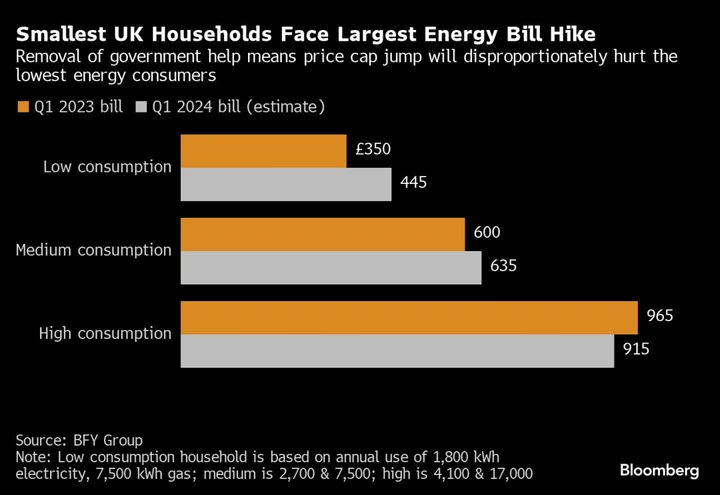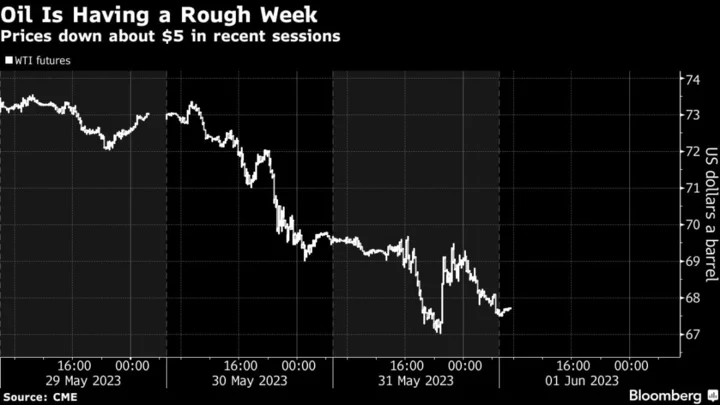British households using the least amount of energy are set to pay the biggest rate increase this winter after the government ended support for people struggling through the cost-of-living crisis.
Regulator Ofgem raised the national price cap for the first quarter of next year to £1,928, a 5% increase from the current £1,834, according to a statement Thursday. The tariff is meant to represent an annual bill for a typical UK household.
The jump comes at a time when Britons face persistent inflation in the costs of food and staples, and the government grapples with declining growth forecasts. Wholesale energy costs have eased as Europe’s crisis fades, but they remain about double the levels seen before the crunch started in 2021.
The impact of the higher cap won’t be distributed evenly across income levels. Households with the lowest consumption will pay as much as 27% more than last winter because of the decline in government support, which represented a larger share of their bill, according to BFY Group consultants.
Consumption of £350 in the first quarter of this year will cost £445 next year, BFY said, and about two-thirds of households will be paying more.
By contrast, consumers of the most energy will be charged about 5% less.
“Despite Ofgem trying to manage this as a positive message, the majority of customers are still paying more than last year at a time when they can ill afford to do so,” said Ian Barker, managing partner at BFY.
The regulator said last week it’s exploring a potential reform of the standing charge, which adds a fixed daily cost for connection to everyone’s bill, and has asked for input from suppliers and consumer groups.









